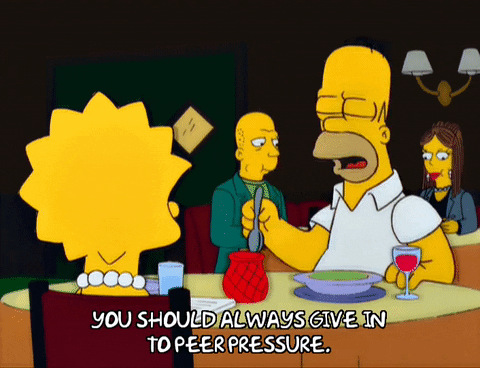Today I want to talk to you about the article “The social facilitation of eating. A review” by Herman.
“Social facilitation” is the term describing the increase in food intake that researchers can observe when people eat together. In fact, when we eat with other persons, we tend to eat more; and the more people in the group, the more we eat.
This effect appears whether we eat with strangers, with family or with friends.
One of the possible explanations found by researchers is that the meals tend to be longer when we are with others and so, mathematically, we would eat more because we spend more time around the dinner table. But this doesn’t really explain the whole phenomenon. Indeed, the meal duration is not composed only of eating periods but also of conversations and pauses in the meal. The increase of the meal duration could then only be caused by an increase of the amount of conversation and not only by the increase of the food intake.
Another explanation could be that when we see other people eat a lot, we tend to imitate them and eat a lot too. But researchers found that this is not as effective when we eat with strangers. Indeed, with strangers we also have a self-consciousness that inhibits us to eat a lot.
Herman, in his article, wants to tackle the problem in another way. He start by asking this simple question: if we eat more when we are with other persons, where does this additional food comes from? Do we have initially the same amount of food on the table and then eat all of it when we are with others but waste some of it when we are alone?
That question seems silly but is crucial to better understand the mechanisms behind this phenomenon. Indeed, it sounds more logical to say that it is the amount served (or ordered) that is different according to the number of people at the table. And thus researchers need to look closely at the ordering stage of the meal rather than the eating stage.
If we order more food when we are with others rather than alone that means we anticipate that we will eat more. Herman calls it the ‘feast hypothesis’ : we expect to have a feast when we are with friends and thus order accordingly, whereas when alone we just have our normal, boring and day-to-day quantities.
Researchers have found out that the effect of social facilitation was stronger with friends and family than it is with strangers (even if it still exists). That could mean that, with strangers, we are more self-conscious and don’t want to project a bad image by eating excessively.
There are still a lot of grey areas around the social facilitation of eating, things that are not perfectly explained by researchers but having a better understanding of its mechanisms could be very useful in a lot of ways, whether we want people to eat less (like with obesity prevention) or, on the contrary, when we want to encourage people in eating more (for example with the elderly).
Thank you for your attention !
Here is the link to the scientific paper : https://www.sciencedirect.com/science/article/abs/pii/S0195666314004590
Source : Herman, C. P. (2015). The social facilitation of eating. A review. Appetite, 86, 61-73.







